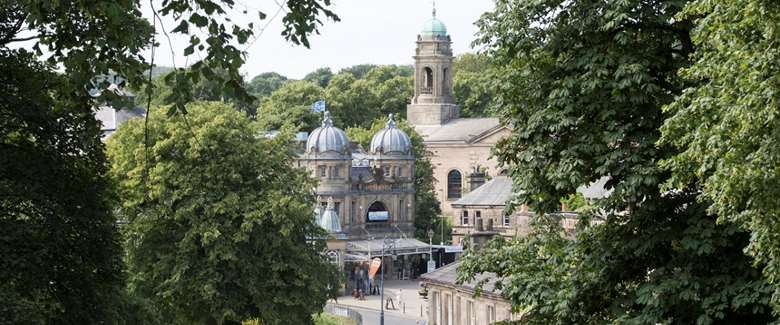'Like writing on water': the challenges of planning an international festival in a pandemic
Monday, March 1, 2021
Michael Williams, CEO of Buxton International Festival, talks us through the difficulties of planning a summer festival with so much uncertainty

Richard Hubert Smith
Planning the 2021 Buxton International Festival (BIF) has been a bit like writing on water. Just as we finished devising a programme and drawing up a budget, the ever-changing currents of the virus swept it away, forcing us to create a new scenario. Over the last six months the executive team had no less than five different scenarios, programmes, and budgets in play for every conceivable permutation. (At times, the dreaded Scenario D – cancellation – seemed never far away.) The paradox of our situation was that we had to hope for the best and acknowledge and prepare for the worst.
However, this exercise in constantly adapting to an evolving pandemic has led the team to new ways of thinking about what we do and how we make art: For the first time in our 40-year history BIF will release video recordings of two operas, several concerts and book talks online; we have revisited the idea of 'festival worthy' opera by exploring works which adhere to social distancing restrictions, including the first UK performance of Malcolm Arnold’s The Dancing Master; we’re producing our first musical – Sondheim’s A Little Night Music – with our partners the Buxton Opera House; showcasing young talented singers from Royal Northern College of Music and Manchester University’s Music Society with their own productions of Viardot’s Cendrillon and Dove’s The Enchanted Pig. This season is very different from the normal Buxton Festival, but the pandemic has led us down a byway we might otherwise have ignored. In many ways, the 2021 season is stronger, more diverse, more forward-thinking than previous seasons. I hope will be remembered for its ambition and innovation.
The pandemic has led us down a byway we might otherwise have ignored
We were, however, disappointed to postpone Kate Whitley’s specially commissioned Our Future in Your Hands, an opera oratorio on Climate Change, featuring a 100-strong children’s choir, 24 musicians and 3 soloists. The logistics of working with four different schools, rehearsing the choir with the orchestra, and finding a suitable venue proved to be too challenging and probably unwise. So, there were small defeats which we had to accept, but there is the hope that Kate’s work will have its world premiere at next year’s festival.
Working remotely as a team took some time to get used to. The festival office was always a place of sparky conversations, heated debates, and flashes of new ideas. Zoom meetings seem a rather muted, sterile substitute, but the freedom of working from home and the longer one-on-one conversations with staff members have produced sterling individual results. Working in isolation has led to greater ownership of a project, a greater sense of responsibility and urgency around completing a task before the weekly Zoom staff meeting. I wonder how we will adjust to the rather confining aspects of office life once we return from lockdown. I suspect some aspects of working from home are here to stay.
At the heart of planning a festival is the audience and artists who visit us. This year, more so than other years, the safety of all our visitors is paramount. We have all had to review Public Health Guidelines, consult with other festivals about their Covid protocols, devise specific plans for each of the venues we will be using, investigate weekly testing of cast members etc., etc. This activity has led to the team interacting with colleagues from other arts organisations in ways we have never done before. The mantra we are all working towards is to adhere to the Covid-19 guidelines and provide a safe festival visit and an exceptional artistic experience.
While many of us are still in lockdown, we are continuing to plan for our summer festival and simultaneously trying to understand what this may mean for the future of arts, our precious festival and society. Is this the opportunity to dare to imagine what a post Covid-19 festival might look like? How can BIF play a leading role in transforming the way we think about opera, music, and books? Perhaps creating plans for a festival during a pandemic is meant to be fluid after all.